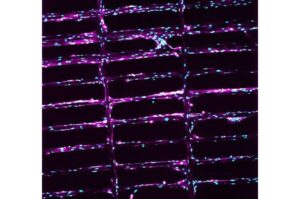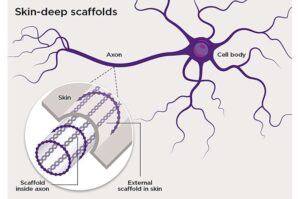
Engineered micro scaffolds show promise for helping people recover from severe muscle loss
When a car accident or athletic injury destroys more than 20% of a muscle’s mass, the body faces a problem it often can’t heal fully on its own. Without intervention, scar tissue fills the injury site and can leave patients with permanent weakness and limited mobility.









